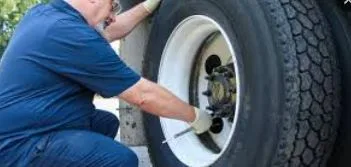Keeping the Wheels Turning: The Ultimate Guide to Truck Repair
Trucks are the backbone of many industries, from freight transportation and construction to agriculture and emergency services. These heavy-duty machines endure tough conditions daily, making truck repair a critical aspect of keeping businesses running smoothly. Whether it’s routine maintenance or unexpected breakdowns, understanding truck repair processes, challenges, and best practices can save time, reduce costs, and extend the lifespan of your vehicle.
This comprehensive guide covers everything you need to know about truck repair—from common issues and preventive measures to choosing the right repair service and utilizing modern technology.
Why Truck Repair Matters
Trucks often operate under extreme conditions, carrying heavy loads over long distances, sometimes through harsh weather or rough terrains. This demanding work puts enormous stress on components such as the engine, transmission, brakes, and suspension. Without regular and expert truck repair:
- Downtime increases, delaying deliveries and projects.
- Repair costs escalate due to neglected minor issues becoming major faults.
- Safety risks multiply, endangering drivers and others on the road.
- Fuel efficiency decreases, raising operational expenses.
- Vehicle lifespan shortens, necessitating costly replacements.
Therefore, investing in proper truck repair and maintenance is not just about fixing problems but also about prevention and optimization.
Common Truck Repair Needs
Trucks are complex machines with thousands of parts, but some issues appear more frequently due to wear and tear or operating conditions. Recognizing these common truck repair needs helps in scheduling timely interventions:
1. Engine Repairs and Overhauls
Engines endure high mileage and harsh usage. Issues like overheating, oil leaks, and fuel system failures require specialized attention.
2. Brake System Maintenance
Brakes are critical for safety. Problems include worn brake pads, air leaks in air brake systems, and faulty ABS sensors.
3. Transmission Troubles
The transmission handles power transfer and can develop problems such as slipping gears, delayed shifting, or fluid leaks.
4. Suspension and Steering Repairs
Given heavy loads and rough roads, components like shocks, struts, and steering linkages often need repair or replacement.
5. Electrical System Fixes
From lighting to engine controls, electrical issues can cause major downtime and safety concerns.
6. Tire Services
Tires wear unevenly due to load and road conditions; regular inspections and repairs prevent blowouts.
Preventive Truck Repair and Maintenance
One of the smartest approaches to truck repair is prevention. Routine maintenance keeps small issues from becoming costly repairs and improves reliability.
Essential Preventive Measures:
- Regular Oil Changes: Keeps engine lubricated and prevents buildup.
- Brake Inspections: Ensures safety and prolongs brake component life.
- Fluid Checks: Transmission fluid, coolant, and brake fluid should be monitored.
- Tire Rotation and Alignment: Prevents uneven wear and improves fuel economy.
- Battery Testing: Avoids unexpected electrical failures.
- Filter Replacements: Air and fuel filters need periodic changes.
- Scheduled Tune-Ups: Diagnostic tests help catch potential problems early.
Many fleet operators create detailed maintenance schedules based on manufacturer guidelines and vehicle usage to optimize repair intervals.
Choosing the Right Truck Repair Service
Not all repair shops are created equal. Selecting a trusted, skilled repair service ensures your truck is in good hands and reduces the risk of repeat issues.
What to Look For:
- Certified Technicians: Look for ASE-certified or manufacturer-trained mechanics.
- Experience with Your Truck Model: Different makes and models may require specific expertise.
- Range of Services: From minor repairs to major engine overhauls, the shop should cover all needs.
- Modern Diagnostic Equipment: Helps identify problems accurately and quickly.
- Availability of Parts: Timely repairs depend on ready access to quality parts.
- Transparent Pricing: Clear estimates and fair rates avoid surprises.
- Customer Reviews and Reputation: Check online feedback and ask for referrals.
- Warranty on Repairs: Guarantees workmanship and parts quality.
The Role of Technology in Modern Truck Repair
The truck repair industry has embraced technology to improve efficiency, accuracy, and service quality.
Diagnostic Tools
Advanced electronic diagnostic systems can scan engine control units (ECUs), transmission modules, and other onboard computers to detect error codes and performance issues.
Predictive Maintenance
By analyzing telematics data from trucks, repair centers can predict potential failures before they happen, scheduling repairs proactively.
3D Printing
Some innovative shops use 3D printing to produce rare or custom parts quickly, reducing wait times.
Mobile Repair Services
Mobile units equipped with diagnostic tools and essential parts can perform on-site repairs, minimizing downtime.
Emergency Truck Repair: What to Do When Things Go Wrong
Breakdowns and mechanical failures happen, even with the best maintenance. Knowing how to respond can protect drivers and reduce repair time.
Steps to Take:
- Safety First: Pull off the road safely, turn on hazard lights, and set up warning triangles if available.
- Assess the Situation: Check for obvious issues like flat tires or fluid leaks.
- Contact Roadside Assistance: Many trucking companies or insurance policies offer roadside repair or towing.
- Communicate: Inform dispatchers or clients about delays.
- Document the Incident: Take notes or photos for insurance and repair shop reference.
- Choose a Reliable Repair Shop: If towing is necessary, select a reputable facility to avoid further problems.
Cost Factors in Truck Repair
Understanding what affects truck repair costs helps in budgeting and negotiating.
- Parts Costs: OEM (Original Equipment Manufacturer) parts cost more but offer higher reliability than aftermarket options.
- Labor Charges: Depend on shop rates and repair complexity.
- Severity of Damage: Major engine or transmission repairs are costly.
- Emergency Services: After-hours or mobile repairs usually carry premiums.
- Preventive vs. Reactive Repairs: Scheduled maintenance is generally cheaper than emergency fixes.
Tips for Extending Truck Life Through Repair and Maintenance
- Follow manufacturer maintenance schedules strictly.
- Train drivers to perform basic daily inspections.
- Use quality lubricants and parts.
- Address minor issues immediately.
- Keep detailed repair and maintenance records.
- Invest in driver safety and training programs.
Conclusion
Truck repair is an indispensable part of operating any trucking business or fleet. From routine maintenance to emergency fixes, understanding the various facets of truck repair can save money, enhance safety, and keep goods moving efficiently. Whether you manage your own truck or oversee an entire fleet, prioritizing reliable repair services and preventive care is essential for long-term success.
By embracing modern technology, choosing the right service providers, and staying proactive with maintenance, you ensure that your trucks remain on the road and out of the shop — ready to meet the demands of any job.





